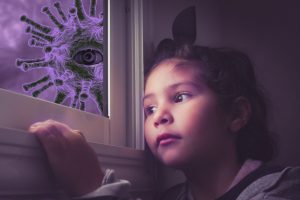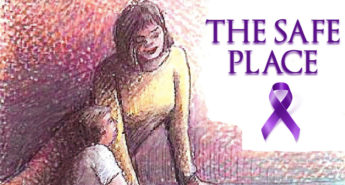 COVID-19, also known as Coronavirus, has been causing problems throughout the United States for a couple of months now. Cases are steady on the rise and social distancing seems as if it is going to last longer and longer. Because of the social distancing guidelines, many parents have been laid off their jobs and children have to stay home since most schools are out for the rest of the year. This has lead to many parents and children having higher stress, anxiety, and irritability levels than usual.
COVID-19, also known as Coronavirus, has been causing problems throughout the United States for a couple of months now. Cases are steady on the rise and social distancing seems as if it is going to last longer and longer. Because of the social distancing guidelines, many parents have been laid off their jobs and children have to stay home since most schools are out for the rest of the year. This has lead to many parents and children having higher stress, anxiety, and irritability levels than usual.
Because of the excess stress and in extreme cases, this could cause parents to feel they have been “pushed to the edge” and as though they are out of control. Dr. Robert Sege, who directs the new Center for Community-Engaged Medicine at Tufts University, suggests that the biggest factors in feeling this way are disrupted routines, parents forced to be at home due to job loss, parents pressured to quit to stay home with the children, and children isolated from others who care and could help and intervene. “These are all conditions that set up what might lead to child abuse and neglect,” said Sege in an interview with PBS.
Not being able to work is leading to more stress in juggling bills, providing food and necessities, and stress and uncertainty about the future. Kids not being able to go to school have kept parents in constant close quarters with their children for several weeks now, and teachers, staff, and home aide workers not able to monitor children for signs of abuse.
Research has shown that it is likely that child abuse will be higher during this pandemic crisis. Research conducted in 2015 by The Children’s Hospital of Philadelphia Research Institute found that during the financial crisis of 2007-2009 there were more hospital admittance for child abuse and traumatic brain injuries. Furthermore, they found this was more common in areas with higher foreclosure rates and job loss. With this evidence, it has many people concerned for the well being of children during the COVID-19 crisis.
Dr. Sege suggested these following things for parents who feel overwhelmed and that think they may be at risk for causing harm to their children:
- Call a friend or pediatrician.
- Send your child to a quiet corner or place for a little while.
- Take a walk outside, remembering social distancing guidelines.
- If you have infants, place them in the crib and walk away and take several deep breaths.
- Call or text a helpline.
Furthermore, it has been suggested to:
- Keep routines going; get up, get dressed, and try to keep your day as normal as possible.
- Maintain social ties; call, text, or face time friends and family.
- Do yoga or other things to exercise and stay active.
- Eat as healthy as you can.
- Know that a child acting out could just be because they are feeling the stress as well.
- Don’t be afraid to ask for help if you feel something is going bad.
If you or anyone you know is a victim of domestic violence please call The Safe Place at 501-354-1884 or our Crisis Line at 1-888-554-2501. You can also call our Perryville location at 501-889-2030. Other resources for help are:
- Childhelp National Child Abuse Hotline – 1800-4ACHILD
- SAMHSA distress helpline — 800-985-5990 or text “talk with us” to 66746
- 211 — National Suicide Hotline
- Crisis Textline — Text Connect to 741741
- National Alliance of Mental Illness — 1-800-950-6264 (Monday-Friday, 10 a.m. to 6 p.m. ET)
- National Suicide Prevention Lifeline – 1-800-273-TALK (8255)
Resources:
https://www.pbs.org/newshour/health/why-child-welfare-experts-fear-a-spike-of-abuse-during-covid-19




Leave a Reply